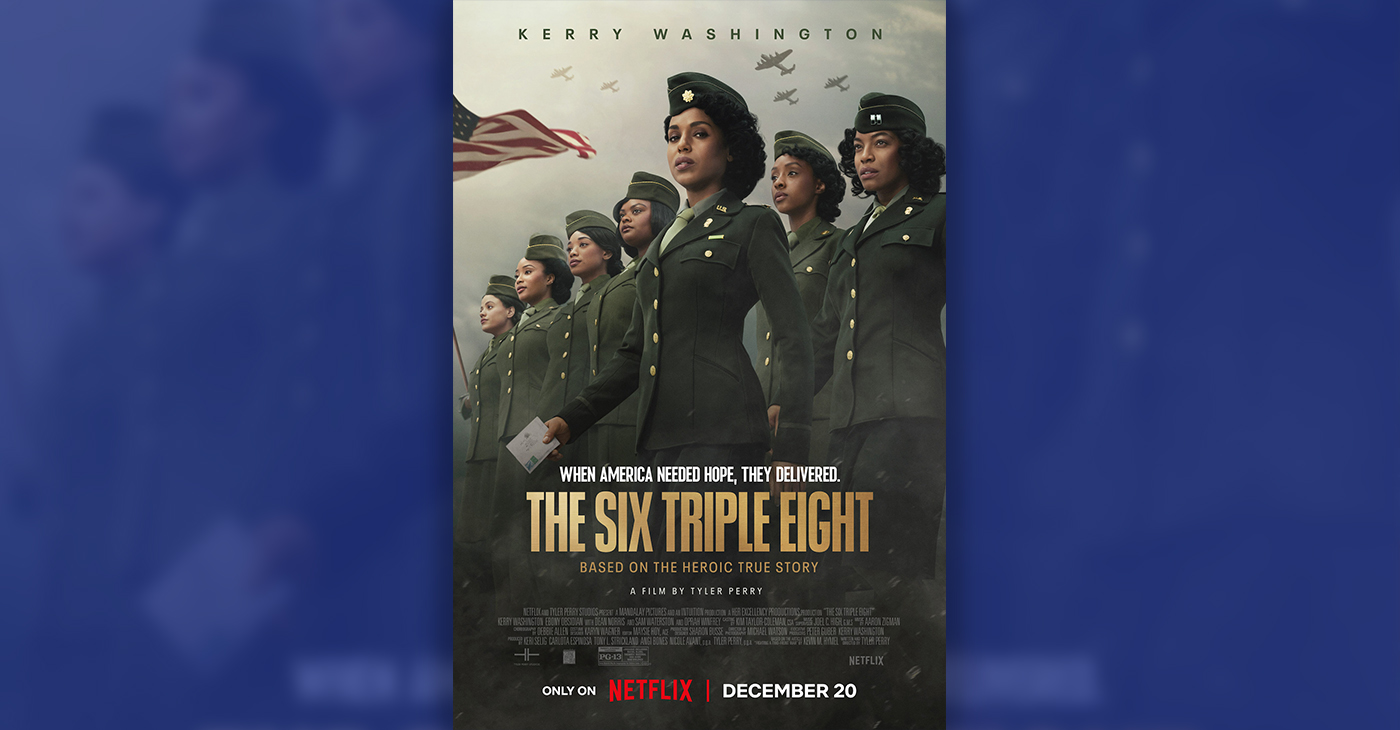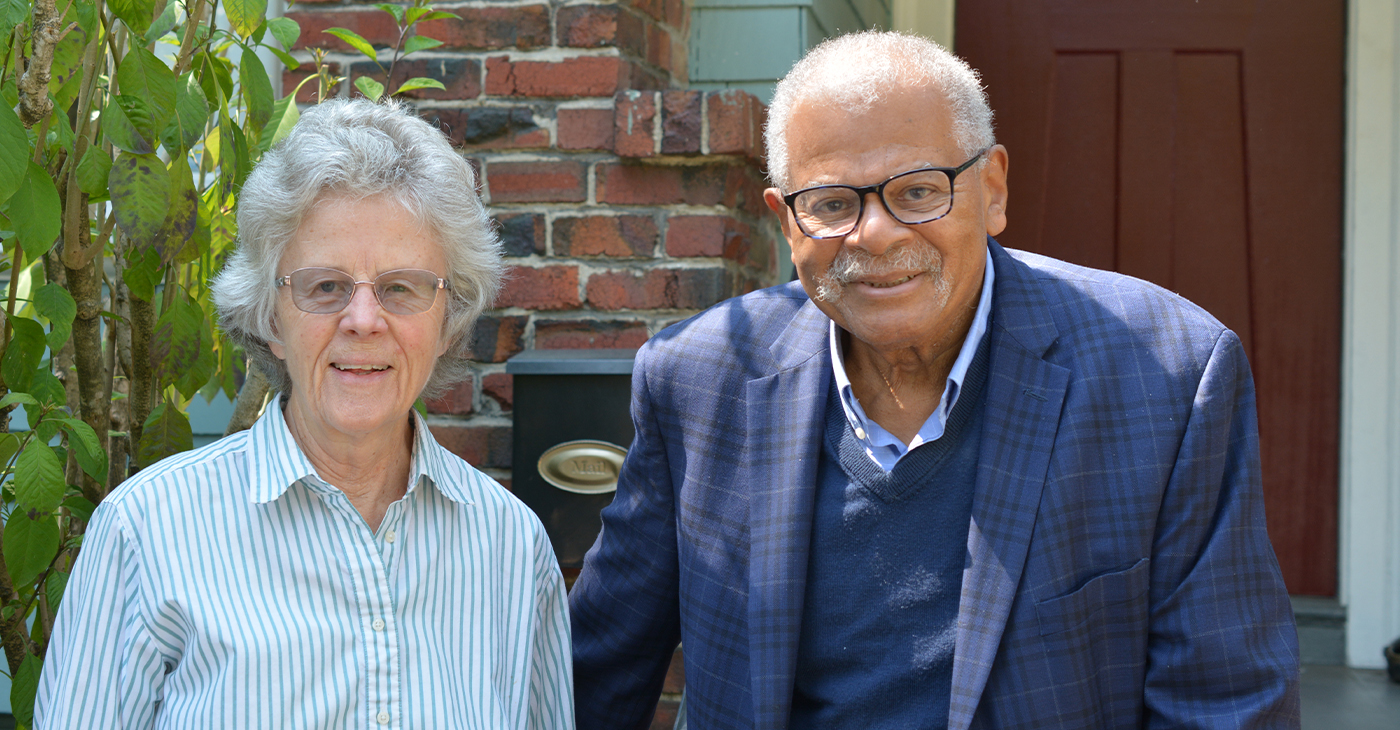Military
Congressman Brown Leads Charge For Transgender Military Service
THE AFRO — Brown has joined a group of bi-partisan representatives who are vigorously challenging President Donald J. Trump’s ban on transgender soldiers.
Maryland Congressman Anthony Brown has joined a group of bi-partisan representatives who are vigorously challenging President Donald J. Trump’s ban on transgender soldiers serving in the military. Sources close to the Congressman, who served in the U.S. Army, said he has never been more “worked up” about an issue as he is about this.
The former lieutenant governor of Maryland joined New York Democrat Sen. Kirsten Gillibrand, and California Democrat Rep. Jackie Speier, chair of the House Armed Services Military Personnel Subcommittee, in co-sponsoring a bill that would protect transgender troops and prevent the Defense Department from essentially terminating their opportunities for performing service to the nation due to their gender identity.
“The president’s bigoted decision to ban transgender Americans from serving in the military carries with it echoes of some of the most ignorant, intolerant moments in our history that saw women, Black Americans, gays and lesbians barred from fully participating in our Armed Forces,” said Rep. Brown.
During a contentious hearing with the House Armed Services Committee’s personnel panel, Brown railed heavily against James Stewart, the Pentagon’s top personnel official. Stewart told the House Armed Services Committee’s personnel panel that the military should keep President Trump’s proposed ban on recruits who have gender dysphoria — the psychological distress caused when a person’s physical or assigned gender conflicts with how they identify — due to the “the accommodations required for gender transition treatments.”
Stewart, however, was careful to explain that transgender soldiers who have had the surgery can still enlist but should not be denied the right to serve altogether. He did appear to express underlying reservations though while using the model that U.S. Armed Services does not allow service by those with preexisting medical conditions such as heart disease, diabetes or cancer, to enlist or serve.
“We are not talking about heart surgery and diabetes,” Brown shot back to Stewart. “We are talking about a group of Americans who identify as transgender. I have never seen a group of Americans who are prone to heart attacks who come lobbying to Congress and saying, ‘Give us the right to serve even though the risk of heart attack is very great because I have already had three or four.’ That is mixing apples and oranges.”
Brown equates the discrimination against transgender soldiers to the struggles of minorities who previously tried to integrate the military. The Maryland Congressman fiercely chiseled away at the arguments by Stewart and Navy Vice Admiral Raquel Bono, director of the Defense Health Agency.
“I hear about special accommodations,” said Brown in a terse but resigned tone. “The same thing was said about African Americans when they wanted to enter an integrated Army in 1948. Same thing was said about gay, lesbian and bisexual members who wanted to serve.”
According to Politico.com, the issues regarding active duty service for transgender soldiers are not any greater than for other personnel. Military instructors have begun to debunk the assertion that transgender military personnel need more time off than their fellow troops, which has been reportedly corroborated by the Pentagon’s own data.
“The Pentagon’s own data show that 393 service members with gender dysphoria have deployed to the Middle East, and of those, only one was unable to complete the deployment for mental health reasons,” according to a statement on Congressman Brown’s website.
While the Trump administration continues to battle for the enacting of its policy, it remains delayed by a series of court battles over its constitutionality. Until it can be resolved, the Obama-era policy still remains in effect.
This article originally appeared in The Afro.
#NNPA BlackPress
FILM REVIEW: The Six Triple Eight: Tyler Perry Salutes WWII Black Women Soldiers
NNPA NEWSWIRE — The film features an all-star cast including Susan Sarandon as Eleanor Roosevelt, Sam Waterston as President Franklin Delano Roosevelt, Oprah Winfrey as Mary McLeod Bethune and Ebony Obsidian (Sistas, If Beale Street Could Talk)) who shows her acting chops by holding her own playing Lena, a bereaved private, opposite Washington.

By Nsenga K. Burton
NNPA Newswire Culture and Entertainment Editor

The Six Triple Eight tells the important yet often overlooked story of the 6888th Central Postal Directory Battalion, an all-Black, all-woman unit in World War II. The film chronicles the battalion’s efforts to clear a massive backlog of undelivered mail meant for U.S. troops, a task that was both vital and challenging. In a show-stopping speech atop a mountain of mail, Major Charity Adams, played fiercely by Kerry Washington, explains the importance of mail during wartime and its relationship to soldier morale. Adams, who is continuously denied promotions despite her impeccable professional performance, leads 855 Black women through 17 million pieces of mail in an abandoned, cold and drafty school rife with “vermin” to raise the morale of soldiers and bring closure to families who haven’t heard from loved ones in nearly a year.
The film features an all-star cast, including Susan Sarandon as Eleanor Roosevelt, Sam Waterston as President Franklin Delano Roosevelt, Oprah Winfrey as Mary McLeod Bethune, and Ebony Obsidian (Sistas, If Beale Street Could Talk), who shows her acting chops by holding her own playing Lena, a bereaved private, opposite Washington.
Lena is a highly sensitive and intelligent young woman who is distraught over the death of her Jewish “boyfriend,” Abram David (Gregg Sulkin), who is killed in the war. Instead of attending college, Lena enlists in the army to “fight Hitler.” En route to basic training in Georgia, Lena is joined with a group of women in the segregated battalion, all of whom are running away from a traumatic past and running towards a brighter future. What emerges is a strong sisterhood that bonds the women, whether in their barracks or crossing the big pond, which is one of the highlights of the film.
The Six Triple Eight has all of the tropes of a film set during the 1940s, including de facto segregation here and abroad, the mistreatment of Black women in and out of the service by any and everybody, aggressive white men using the N-word with the hard “R,” and older Black women whose hearts are free, but minds are shackled to fear that living in segregation and being subjected to impromptu violence, ridicule, jail or scorn brings to bear.
While the film elevates the untold story of the dynamic, pioneering, and committed Black servicewomen of the Six Triple Eight, the narrative falls prey to Perry’s signature style — heavy-handed dialogue, uneven performances and a redundant script that keeps beating viewers over the head with what many already know as opposed to what we need to know. For example, a short montage of the women working with the mail is usurped by abusive treatment from white, male leaders. A film like this would benefit more from seeing and understanding the dynamism, intelligence and dedication it took for these women to develop and implement a strategy to get this volume of mail to the soldiers and their families.
In another scene, the 6888 soldiers yell out their prior professions, which would prove helpful to keeping their assignment when they come under attack again from the white military men. Visually seeing the Black women demonstrate their talents would be far more satisfying than hearing them ticked off like a grocery list, which undermines the significance of their work and preparation for war as Black women during this harrowing time in history. The lack of emphasis on their skills and capabilities diminishes the overall impact of their story, leaving viewers wanting more depth and insight into their achievements.
While the film highlights the struggles these women faced against institutional racism and sexism, it ultimately falls short in delivering a nuanced portrayal of their significant contributions to the war effort. This is a must-see film because of the subject matter and strong performances by Washington and Obsidian, but the story’s execution makes it difficult to get through.
Tyler Perry is beloved as a filmmaker because he sometimes makes films that people need to see at a particular moment in time (For Colored Girls), resuscitates or helps to keep the careers of super accomplished actors alive (Debi Morgan, Alfre Woodward, Cicely Tyson) and gives young, talented actors like Obsidian, Taylor Polidore Williams (Beauty in Black, Snowfall, All-American HBCU) and Crystal Renee Hayslett (Zatima) a chance to play a lead role when mainstream Hollywood is taking too long. One thing Perry hasn’t done is extend that generosity of spirit to the same extent to the writing and directing categories. Debbie Allen choreographed the march scene for Six Triple Eight. What might this film have been had she directed the film?
This much-anticipated film is a love letter to Black servicewomen and a movie that audiences need to see now that would benefit immensely from stronger writing and direction. Six Triple Eight is a commendable effort to elevate an untold story, but it ultimately leaves viewers craving a more nuanced exploration of the remarkable women at its center.
Six Triple Eight is now playing on Netflix.
This review was written by media critic Nsenga K. Burton, Ph.D., editor-at-large for NNPA/Black Press USA and editor-in-chief of The Burton Wire. Follow her on IG @TheBurtonWire.
Bay Area
Gus Newport: A Soldier for Justice
One year ago, on June 12, 2023, my husband of 35 years was picked up by a van at our house in Oakland. It was the last time I saw him alive. The van was owned by Owl Transport, a company used by the Department of Veterans Affairs. It was to take my husband to the San Francisco VA Medical Center to see about getting a new hearing aid. Within a half hour of leaving the house, a San Francisco Fire Department ambulance was called to 8th and Harrison streets because Gus was unconscious. When they arrived at San Francisco General Hospital, Gus’s cell phone, wheelchair and tote bag had all gone missing. An enterprising social worker Googled Gus and found a phone number for his daughter in Atlanta; she called her brother in Oakland, and he immediately called me.

By Kathryn Kasch
One year ago, on June 12, 2023, my husband of 35 years was picked up by a van at our house in Oakland. It was the last time I saw him alive.
The van was owned by Owl Transport, a company used by the Department of Veterans Affairs. It was to take my husband to the San Francisco VA Medical Center to see about getting a new hearing aid.
Eugene “Gus” Newport was 88 years old and wheelchair-bound because he had lost a leg in 2021, but my husband remained as active as I had always known him, forever engaged in civil rights and community development work, just as he had been as mayor of Berkeley from 1979 to 1986.
Gus had a busy week ahead of him: on June 16 he was going to be interviewed for a film about his friendship with Malcolm X; on the following day he was scheduled to fly to Atlanta for a weekend board meeting.
Within a half hour of leaving the house, a San Francisco Fire Department ambulance was called to 8th and Harrison streets because Gus was unconscious. When they arrived at San Francisco General Hospital, Gus’s cell phone, wheelchair and tote bag had all gone missing. An enterprising social worker Googled Gus and found a phone number for his daughter in Atlanta; she called her brother in Oakland, and he immediately called me.
The next morning, I called Owl; they said they were investigating and had notified the VA, but the VA never called the family. I was able to reach Gus’s VA doctor, who works primarily at UCSF, and she told me to call the Patient Advocate number, but they never called me back.
The doctors at the hospital determined that Gus had suffered a severe neck and spinal injury and that if he ever regained consciousness, he would be a permanent quadriplegic. On June 17, we decided to let him go. The VA doctor helped me convince the San Francisco Medical Examiner to carry out an autopsy, which was finally done on June 30, and it confirmed that Gus’s injuries were the result of somehow falling backward in the van.
Three weeks after the accident, someone finally called me from the Veterans Transportation Service office in San Francisco — but he would not tell me anything about what they thought happened in the van, though he said they were working to make sure this never happens again. They had never looked for a second phone number to reach the family and continued to call Gus’s missing cell phone after he died.
In July 2023 the family filed a wrongful death lawsuit against Owl in San Francisco Superior Court, and we are waiting for a trial date to be set. In December 2023, the Chronicle ran an investigative article about the poor billing system for the SFFD ambulances, and sure enough, when I asked our lawyers if they had seen a bill, they showed me an invoice “addressed” to “Eugene Doe, Homeless, San Francisco, CA 94107” — adding insult to injury, even though the driver had Gus’s name and address on his log sheet since he had just picked him up.
Congresswoman Barbara Lee made some inquiries to the VA on our behalf, and in February, eight months after the accident, an undersecretary of the VA called me — but only to offer me his condolences. He still said nothing about what their investigation had revealed. After I asked him some questions, he said they are still using Owl because they have not been able to find another company to serve the Oakland area — more discouraging news.
And in September 2023 our attorney filed a claim for wrongful death with the VA, but when he called the Office of the General Counsel in February, he learned that the claim had been received but had never been downloaded into their system, let alone assigned to a claim agent!
Gus was drafted into the Army in 1956 and was sent from his hometown of Rochester, N.Y., to Fort Knox, KY, giving him his first exposure to racist Jim Crow rules in Indiana and Kentucky. From there he was stationed in Heidelberg, Germany, where he worked in intelligence and logistics and played football for the base team, injuring his right knee — “playing football for my country,” he said. He also uncovered corruption among American officers who were skimming money from payments to German civilian workers. He threatened to go to the Stars and Stripes newspaper and was abruptly discharged and put on a plane back to the U.S.
Gus was a civil rights and peace activist all his life, starting with protesting police violence against Blacks in Rochester in the 1960s. He came to Berkeley in the 1970s and in the spring of 1979 was drafted by Berkeley Citizens Action to run for mayor. He won that election and was re-elected in 1982 by the biggest plurality in Berkeley history. He challenged unnecessary wars and budget priorities that consistently fund excessive Pentagon spending instead of our domestic needs and security. He supported sanctuary for refugees from Central America, divested from apartheid South Africa, and pioneered in providing domestic benefits for unwed partners.
Countless times in his life, Gus stepped up when his voice was needed. On April 5, 1977, his birthday, a group of protestors in San Francisco began the longest occupation of a federal building in U.S. history, and Gus showed up to support the dozens of disabled activists who were demanding their civil rights. Specifically, they called for implementation of Section 504 of the 1973 Rehabilitation Act, which was designed to help returning Vietnam veterans and included language stipulating that no person should be discriminated against on the basis of disability in any program receiving federal assistance — from schools to transportation and public buildings. After 25 days the “504 occupation” succeeded.
When Gus was elected mayor, his administration created the Mayor’s Task Force on Persons with Disabilities, passed ordinances to ensure access to all public meetings and non-discrimination in City hiring and provided funding for programs serving people with disabilities.
Now we are still faced with the task of uncovering the truth of what happened to Gus in the Owl van and seeking justice for our loss. Unfortunately, except for the one doctor, the Veterans Administration has done nothing to answer our questions or help with our plight.
Years ago, I remember Gus’s granddaughter had just learned the Pledge of Allegiance in kindergarten. She was declaiming some of it in the back seat of our car — “with liberty and justice for all” — and she paused. She asked us, “What’s justice?”
Kathryn Kasch is a retired housing planner who was born and raised in Oakland. For more information, go to gusnewport.com.
Bay Area
Oakland native serves aboard U.S. Navy flagship in Japan
Hospitalman Marco Ford, a native of Oakland, served in Japan aboard the U.S. 7th Fleet flagship, USS Blue Ridge. Ford graduated from Bay Tech High School in 2021.

By Navy Office of Community Outreach
Hospitalman Marco Ford, a native of Oakland, served in Japan aboard the U.S. 7th Fleet flagship, USS Blue Ridge.
Ford graduated from Bay Tech High School in 2021.
The skills and values needed to succeed in the Navy are similar to those found in Oakland, says Ford.
“I learned growing up to stay calm, especially in tough situations,” he continued. “If you keep your head clear and don’t let your emotions take over, you can still get done what you need to get done.”
Ford joined the Navy two years ago. Today, Ford serves as a hospital corpsman.
“I joined the Navy to learn as a person and to help those around me,” said Ford. “I thought the military would be a good place for me to grow and help others grow as well.”
Blue Ridge is the oldest operational ship in the Navy and, as the 7th Fleet command ship, it supports an admiral’s staff that actively works to foster relationships with allies and partners in the Indo-Pacific region.
The U.S. 7th Fleet provides security alongside allies and partners throughout a free and open Indo-Pacific. As the U.S. Navy’s largest forward-deployed fleet, 7th Fleet operates roughly 50-70 ships and submarines and 140 aircraft with approximately 20,000 Sailors.
With 90% of global commerce traveling by sea and access to the internet relying on the security of undersea fiber optic cables, Navy officials continue to emphasize that the prosperity of the United States is directly linked to recruiting and retaining talented people from across the rich fabric of America.
Service members in this region are part of the U.S. Pacific Fleet, which has the largest area of responsibility in the world.
“We will earn and reinforce the trust and confidence of the American people every day,” said Adm. Lisa Franchetti, chief of naval operations. “Together we will deliver the Navy the nation needs.”
Ford has many opportunities to achieve some of his goals during military service.
“I’m proud of being nominated for Bluejacket of the Quarter so early in my career,” said Ford. “It’s nice to have that validation for the work that I’m doing. “Service is a good way to see and meet new people. You see a lot of stuff. You’re protecting people and you’re learning to be a part of a team.”
“I’d like to thank my mom, my dad and my chain of command,” added Ford. “They’re all good people who have helped me grow in different ways.”
-

 Bay Area4 weeks ago
Bay Area4 weeks agoPost Salon to Discuss Proposal to Bring Costco to Oakland Community meeting to be held at City Hall, Thursday, Dec. 18
-

 Activism4 weeks ago
Activism4 weeks agoMayor Lee, City Leaders Announce $334 Million Bond Sale for Affordable Housing, Roads, Park Renovations, Libraries and Senior Centers
-

 Activism4 weeks ago
Activism4 weeks agoOakland Post: Week of December 10 – 16, 2025
-

 Activism4 weeks ago
Activism4 weeks agoOakland School Board Grapples with Potential $100 Million Shortfall Next Year
-

 Activism4 weeks ago
Activism4 weeks ago2025 in Review: Seven Questions for Black Women’s Think Tank Founder Kellie Todd Griffin
-

 Arts and Culture4 weeks ago
Arts and Culture4 weeks agoFayeth Gardens Holds 3rd Annual Kwanzaa Celebration at Hayward City Hall on Dec. 28
-

 Advice4 weeks ago
Advice4 weeks agoCOMMENTARY: If You Don’t Want Your ‘Black Card’ Revoked, Watch What You Bring to Holiday Dinners
-

 Activism4 weeks ago
Activism4 weeks agoAnn Lowe: The Quiet Genius of American Couture






















































